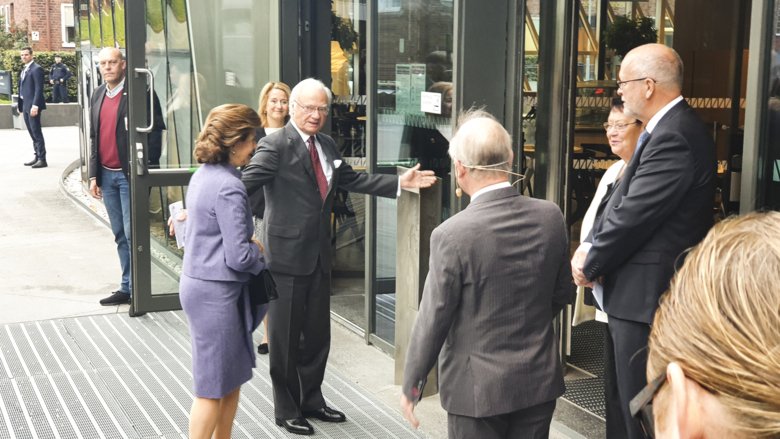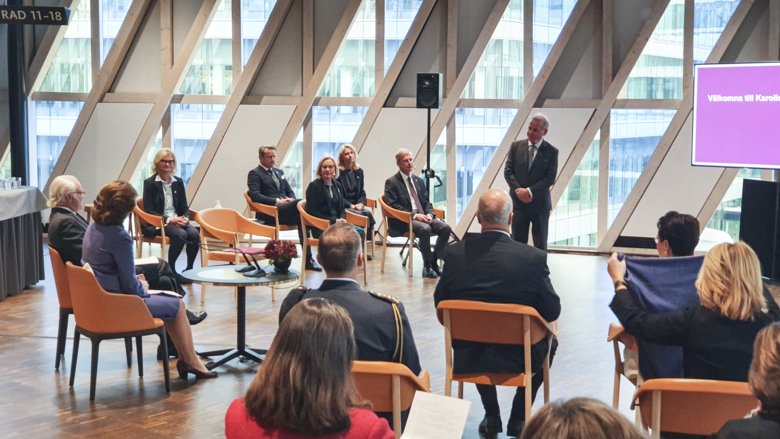The royal couple was updated about COVID-19 at KI

On Monday 12 October, the Stockholm County Administrative Board arranged a programme of royal visits to see how the local health authority is handling the COVID-19 pandemic. Their first stop was Karolinska Institutet.

The King and Queen were met by KI researchers Lars I Eriksson, Maria Eriksdotter, Gunilla Karlsson Hedestam and Matti Sällberg, who informed them of the hard work being done to deepen the understanding of COVID-19.
KI president Ole Petter Ottersen and University Director Katarina Bjelke were also present to talk about the work KI is doing in terms of education, collaboration and the dissemination of knowledge to the wider community.
The King and Queen showed considerable interest and asked numerous questions, including how researchers can keep themselves updated given the torrent of information about COVID-19 coming from all corners of the world. Professor Gunilla Karlsson Hedestam also gave a talk on effective antibodies, long-lived memory cells and immunity.
“People who have developed antibodies control the infection more quickly if re-exposed,” said Professor Karlsson Hedestam. “People with demonstrated antibodies can therefore be more at liberty to meet older relatives, albeit while still exercising caution. After a while, the antibodies die out, which is normal after an active immune response. Left behind, however, are memory B cells, which recognise the virus and respond to re-infection by triggering a rapid production of antibodies.”
Professor Lars I Eriksson talked about how the treatment of severely ill COVID-19 patients has improved; Professor Maria Eriksdotter about how much has been learnt about the care of the elderly; and Professor Matti Sällberg about vaccine development.
The royal couple also heard about the university’s response to the ongoing pandemic and its plans for when the pandemic is over. This includes how KI can help to strengthen international collaboration and preparedness for future global crises, to which end the President has set up an interdisciplinary resource team to work with the aftermath of COVID-19.
